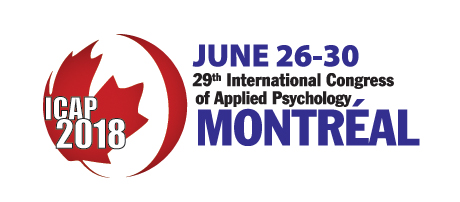2018 Pre-Congress Workshop 6: Demystifying Knowledge Mobilization: Creating a Plan, Creating Change
Jun 24, 2018 09:00AM
Palais des congrès de Montréal

| Presented by: | Travis Sztainert, Jess Voll |
| Sponsored by: |
Industrial and Organizational Psychology Community Psychology Addiction Psychology |
| Continuing Education Credits: | 6 |
| Notes: |
- |
| Cost: |
CPA/IAAP Members: $345.00 + GST + QST Non-Members: $425.00 + GST + QST
Click here to download the country list |
| Duration: | Full Day (9:00 – 16:30) |
| Target Audience: | Researchers, clinicians, and graduate students. |
| Skill/Difficulty Level: | Intermediate Level |
|
Workshop Description: The call to disseminate knowledge from basic research to those who can use that knowledge to make change began in the 1950’s. Decades later, however, most knowledge creators (e.g., researchers, academics, clinicians) have only a vague understanding of why and how they can move their findings to a more practical domain, where change can be made. The apparent gap between the knowledge creators and end-users is due, in part, to a lack of consensus about how to implement knowledge mobilization (KMb). In this light, the current workshop will clarify the concept of KMb, and help you work towards building a KMb Plan of your own. The primary purpose of KMb is to close the gap between the knowledge creators and end-users, such that the knowledge accrued by the creators finds its way into the hands of those who may find the knowledge useful, including government organizations, policy makers, the general public, private industry and even other clinicians/researchers. Not content with the divide between academia and application, there has been a push from researchers, funding agencies and universities to incorporate KMb into research. Importantly, this gap is already closing due to (a) growing awareness that research findings are not effectively used in practice in a timely fashion and (b) an emphasis on evidence-based practices and policy. In this workshop you will learn (among other things): KMb theory and frameworks, how to make a KMb plan, different KMb strategies/initiatives, KMb evaluation and KMb skills. |
|
|
Learning Outcomes:
|
|
